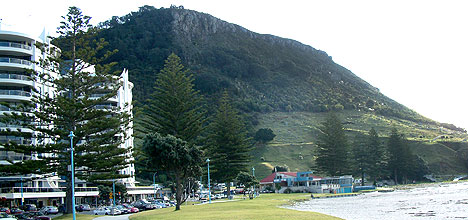A crucial court case over who controls the right to introduce genetically modified organisms into the environment will be fought out during four days in Tauranga this week.
Crown research institute, Scion, is taking the Bay of Plenty Regional Council to the Environment Court over its mention of genetically modified organisms in the proposed regional policy statement.
An Environment Court case will be heard in Twin Towers later this week over GMOs.
'Currently, because no ‘polluter pays' liability regime is in place, councils and ratepayers could find themselves paying for an expensive clean-up should GMOs escape containment,” says Tauranga resident Ron Lopert.
'The inclusion of precautionary wording is hardly extreme, nor is it backing a blanket ban on GE. Rather, it is a common sense, moderate way to manage scientific uncertainty and possible dire financial consequences by alerting councils to consider applications for outdoor GMOs on a case-by-case basis. This is simply good public policy-making.”
The mention of GMOs is in a preamble paragraph, says Bay of Plenty Regional Council senior planner Nassah Steed.
'It has no policy weight, it's just a preamble to the actual policy in the regional policy statement,” says Nassah.
GMOs are mentioned in the proposed regional policy statement in response to a number of submissions and comments the council has received about GMOs during the development of the second generation policy statement.
'We believe we have dealt with this issue in the correct manner. For some time we have had a number of persons in the community raising concerns about genetically modified organisms.
'We didn't identify it as a significant resource management issue, and if we had we would have had to follow through with an objective, policies, and methods,” says Nassah.
He says Scion's concern is that the statement has the potential for policies to be put in place to compel district and city councils in the region to put in place policies dealing with GMOs.
The policy paragraph states:
‘The existence of genetically modified organisms in the environment has generated community concern. Of particular concern is the placement and location of trial and containment facilities. The Bay of Plenty Regional Council promotes a precautionary approach to the release, control and use of genetically modified organisms within the region.
‘The precautionary approach is a necessary response to unresolved issues of potential liability, environmental risks, economic costs, and cultural and social effects. The Hazardous Substances and New Organisms Act 1996 contains specific legislation for managing genetically modified organisms.These legislative functions are carried out by the Environmental Protection Authority.
‘Current legislation may be inadequate to manage potential adverse effects from the use of genetically modified organisms in the region.'
'So they are basically concerned that this is going to have an effect on their business in the region,” says Nassah.
The Northland Regional Council has gone further, including issues about GMOs in objectives, policy and methods under the banner of issues of significance for iwi authorities in the region.
'Generally speaking most of the iwi are concerned about genetically modified organisms up in that part of the country, but it's limited to plants and not animals.
'Scion haven't submitted on that policy statement,” says Nassah.
The purpose of the Regional Policy Statement is to promote sustainable management in the Bay of Plenty, as the council is obliged to under the law. Among other things, sustainable management ensures that fundamental resources are safeguarded and protects the environment from the adverse effects of activities.
Ron says the regional council should be applauded for doing its job.
The Environment Court hearing is in the conference room Oceanside Twin Towers starting November 28 at 9am.
Ron says the public are paying for the court action twice over, both as taxpayers and as ratepayers.
Scion is a publicly funded Crown Research Institute, and the regional council is ratepayer funded.
The Greens says it is a test case for the whole of New Zealand, and are organising continual attendance during the four days to show support for the regional council.
It is the first challenge in NZ to the rights of local bodies to challenge the use of GM plants and animals in their environments, says Green Party Bay of Plenty membership secretary Colin Hewens.
'We believe people have that right.”
Check SunLive.co.nz for coverage of the court hearing as it happens.



0 comments
Leave a Comment
You must be logged in to make a comment.